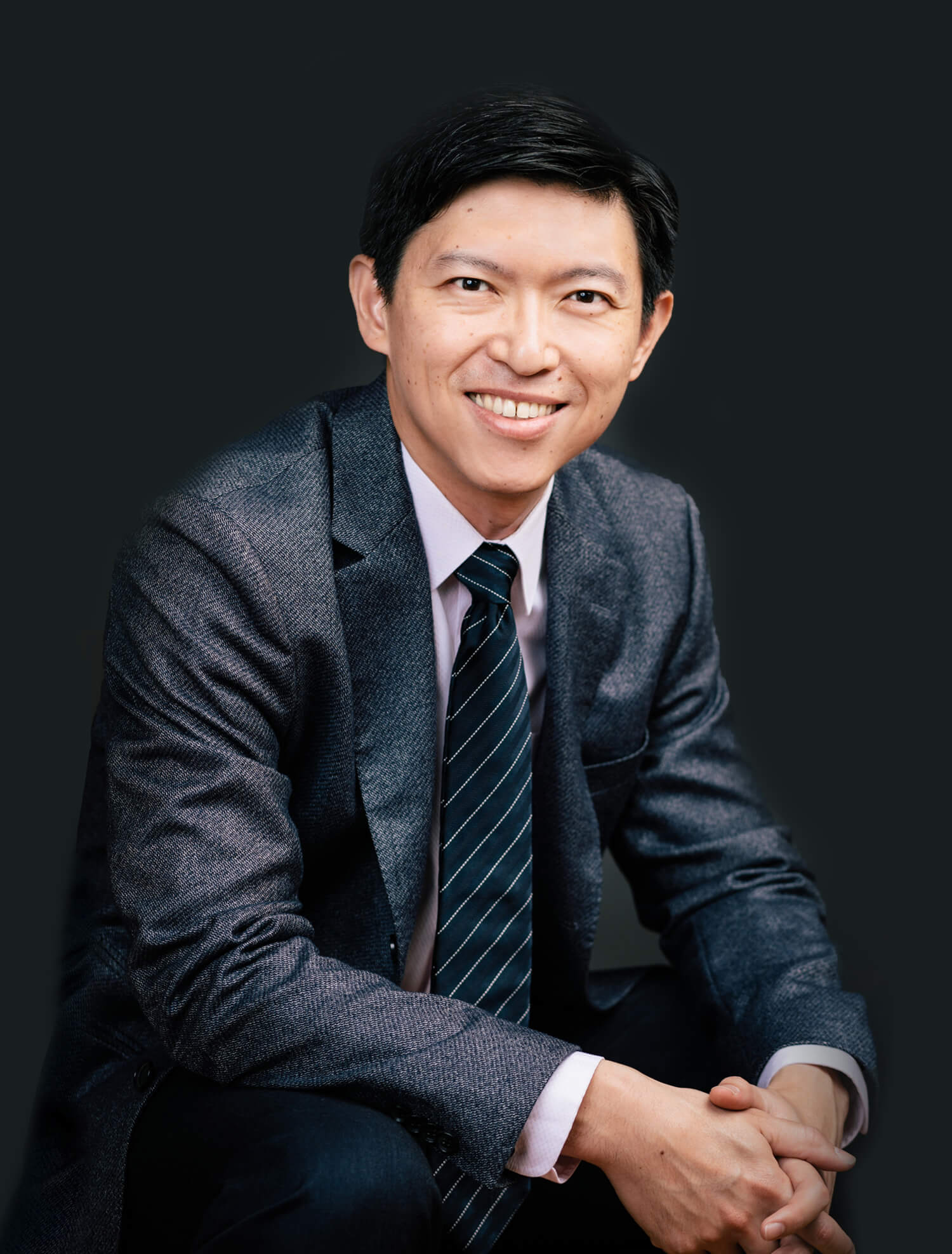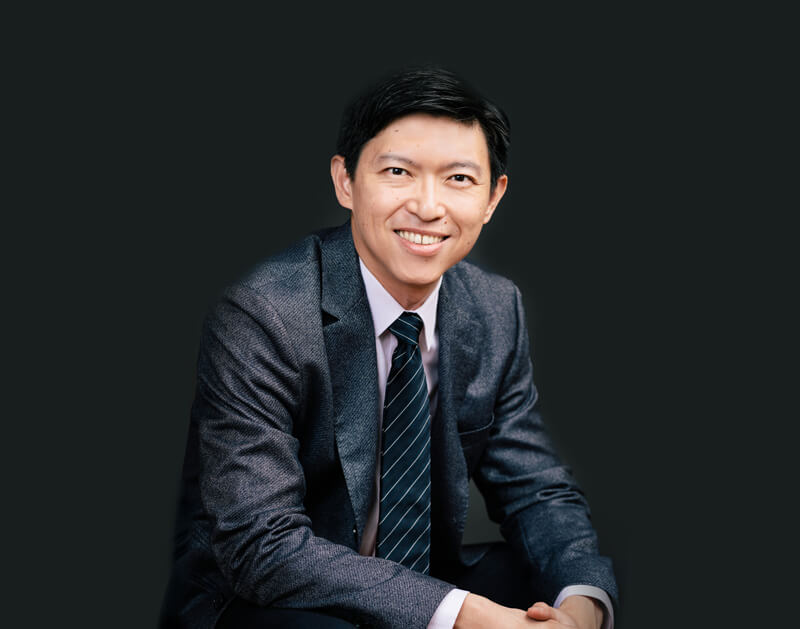(Ask for Dr Ong)

DR. ONG KEE LEONG
Meniscus Tear Specialist in Singapore
A torn meniscus is a tear in the cartilage of the knee. The meniscus can tear from either trauma or injury or from degeneration. When the meniscus is torn badly, it can lock the knee. It is important to seek immediate medical attention when this occurs.
Book AppointmentWhat is a torn meniscus?
A torn meniscus is a tear in the cartilage of the knee. The meniscus can tear from either trauma or injury or from degeneration. When the meniscus is torn badly, it can lock the knee. Locking implies that the torn part of the meniscus has displaced into a part of the knee where it does not belong or fit. It is important to seek immediate medical attention when this occurs.


What Is The Meniscus?
The meniscus is a C-shaped piece of cartilage that acts as a cushion between your thigh bone (femur) and shin bone (tibia). There are two menisci in each knee joint. The function of the meniscus is to absorb shock and distribute the load in the knee.
What Are The Causes Of A Meniscus Tear?
A meniscus tear typically occur from either trauma or injury or degeneration due to age.
- Trauma is often associated with sporting injuries where manoeuvres that require sudden stops or sudden direction changes are executed. Examples of such movements include pivoting or sidestepping in sports such as basketball, soccer or rugby. Even kneeling, deep squatting or lifting heavy objects can sometimes cause a meniscus tear
- In older adults, degenerative changes of the bone and cartilage in the knee can result in a torn meniscus with little to no trauma
Medisave & Insurance Shield Plan Approved
For Singaporeans & Singapore Permanent Residents
What Are The Symptoms Of A Meniscus Tear?
The symptoms of a meniscus tear typically include one or more of the following:
- Pain in the knee
- Feeling a ‘popping’ sensation or hearing a ‘pop’ sound in the knee
- Giving way or buckling of the knee
- Knee swelling
- A tendency for the knee to get “stuck” or lock up

Treatment For Meniscus Tears in Singapore
Non-Surgical Treatments For Meniscus Tears in Singapore
Once diagnosed with a meniscus tear, the first phase of treatment is often conservative and non-surgical. In most cases, patients see significant improvements with non-surgical treatment options.
Anti-Inflammatory Medications
Since a torn meniscus can be painful, the first line of treatment is to take anti-inflammatory oral medications and pain relievers to help ease your discomfort as you recover.
Physiotherapy
Physiotherapy is the treatment of injury and disease using non-invasive techniques. It focuses on improving your ability to move and function without pain, hence enhancing your quality of life.
Exercises performed during physiotherapy sessions aid in the strengthening of your knee muscles. The goal of physiotherapy is to increase the strength, endurance, and mobility of your knee. It also helps to reduce the likelihood of future injuries.
Corticosteroid Injections
Corticosteroid injections are anti-inflammatory medications that will be injected directly into your knee to reduce inflammation. However, repeated injections are discouraged as they may cause further damage to the shoulder.
Surgical Options for Meniscus Tears in Singapore
If your symptoms do not improve with physiotherapy and other conservative methods, you may need to turn to surgical options to treat your frozen shoulder to restore the function of your knee.
Dr. Ong will assess your symptoms in detail before recommending the right surgical option for your specific injury.
What are the surgical options for meniscus tears?
There are 2 surgical options to choose from, depending on the severity of your meniscus tear:
- Arthroscopic Meniscus Repair Surgery – suturing torn edges back into place and allowing the meniscus to heal on its own
- Partial Meniscectomy – part of the meniscus is removed and the healthy tissue is left intact
Which surgery do I need?
The surgery you require will depend on your meniscus tear.
The meniscus is a circular piece of cartilage. The blood that supplies nutrients to the meniscus comes from the outer rim.
To undergo Arthroscopic Meniscus Repair Surgery, your meniscus tear must be located near the outer rim so that it can receive a good blood supply in order to heal properly.
However, if your tear is in the central part of the meniscus cartilage, it cannot heal properly due to poor blood supply. Hence, in this case, you will have to undergo a Partial Meniscectomy.
How are the meniscus surgeries performed?
During the surgery, you will be under general anaesthesia. The surgery is typically done using a minimally invasive approach where an arthroscope (tube-like video camera) and other surgical tools are inserted via small incisions in the knee joint space. Your damaged meniscus will either be repaired by suturing the torn edges or be removed.
Are there any risks and complications of meniscus tear surgeries?
The risks and complications associated with meniscus repair surgeries are low. However, as with all surgeries, there are some potential risks. These include:
- Infection
- Bleeding and blood clots
- Persistent knee pain
- Knee pain or stiffness
Dr. Ong will discuss the risks associated with the surgery with you thoroughly and address any concerns you may have before going forward.
Why Do Patients Choose Dr Ong Kee Leong?
- Dr. Ong Is Passionate In Sports, Giving Him A Deep Understanding Of Sports-Related Injuries And How They Can Be Treated
- Personalised And Professional Approach To Deliver High-Quality Orthopaedic Care Based On The Most Up-To-Date Literature
- Detailed Aftercare Plan To Ensure Smooth, Long-Term Recovery
- Fellowship Trained Surgeon With 15 Years Of Experience In Orthopaedic Conditions
- Problem-Oriented, Well-Organised and Individualized Treatment Plans Catered To Your Specific Needs
- Specialist In The Management Of Sports Injuries And Degenerative Conditions Of The Shoulder And Knee Joints
- Knowledgeable And Pleasant Clinical Staff To Assist You With Your Every Need Detailed Aftercare Plan To Ensure
- Our Care Is Conveniently Accessible At Mount Elizabeth Novena and Farrer Park Hospital
- Minimal Waiting Time For Initial Consultation
- Assistance With Medical Claims (e.g. Medisave & Integrated Shield Plans)
“At our clinic, we generally try to explore non-surgical treatment such as activities modification, physiotherapy and orthotics before recommending invasive intervention options.”
Why Choose Us
-
Fellowship Trained Orthopaedic Surgeon
Dr. Ong is fellowship trained with 15 years of experience in orthopaedic conditions, with a subspecialty in the management of sports injuries and degenerative conditions of the shoulder and knee joints. Dr. Ong uses a personal and professional approach to deliver high-quality care, based on the most up-to-date medical literature.
-
Passionate About Sports Medicine
Dr. Ong Is Passionate In Sports, Giving Him A Deep Understanding Of Sports-Related Injuries And How They Can Be Treated
-
Advanced Treatments
Our treatment plans are problem-oriented, well organised and personalised, catering to each of your specific needs. We are also committed to seeing you through to recovery, where individualized aftercare plans are designed to ensure a smooth and long-term recovery.
-
Fast Recovery
Our individualized treatment plans are designed to treat the cause of your injury quickly. We are passionate about getting you back in the game, and staying in the game. Our team is fully committed to returning you to the life and activities you love.
About Dr. Ong Kee Leong
Senior Consultant, MBBS (Singapore), MMed (Ortho), FRCSEd (Ortho)
Dr. Ong Kee Leong is a fellowship-trained orthopaedic surgeon. He subspecializes in shoulder and knee, foot and ankle, hand wrist and elbow surgeries, arthroscopic sports surgery, and the management of sports-related injuries.
He has been registered with the Singapore Medical Council as a specialist in Orthopaedic Surgery since 2011.
- MBBS, National University of Singapore (NUS) Faculty of Medicine 2001
- Member of the Royal College of Surgeons of Edinburgh 2007
- Master of Medicine in Orthopaedic Surgery (NUS) 2007
- Fellow of the Royal College of Surgeons of Edinburgh in Orthopaedic Surgery 2011
- Health Manpower Development Plan (HMDP) Scholarship, Ministry of Health 2012-2013:
- Sports Surgery and Arthroscopy in Germany (Hannover)
- Adjunct Assistant Professor, Lee Kong Chian School Of Medicine, Nanyang Technological University
- Senior Clinical Lecturer, Yong Loo Lin School of Medicine, NUS
Awards & Teaching
- Dr. Ong had received numerous awards such as Best Service and Eastern Health Alliance Caring (Gold) Awards.
- He also has an interest in clinical research and has written papers in multiple peer-review journals. As a Core Faculty of Singhealth Orthopaedic Surgery Residency Program, he oversees the training of junior orthopaedic surgeons.
- Regularly invited to teach local and regional surgeons in Shoulder and Knee Surgery Courses.
- He is a recipient of multiple teaching awards including the Singhealth Residency Outstanding Faculty Awards from 2014-2016 and Changi General Hospital Outstanding Educator Awards 2015-2016.
FAQs About Meniscus Tears Treatment in Singapore
What Can I Expect At My First Visit With Dr. Ong?
At your first appointment with Dr. Ong, he will evaluate your medical history and the pain you are experiencing.
Depending on the symptoms you have, he will likely perform diagnostic imaging tests (e.g. X-Rays or MRI scans) to assess your condition accurately. X-rays and CT scans are useful to rule out bone problems, whilst an MRI scan is excellent for looking at soft tissue (e.g. tendons, ligaments, and cartilage) problems.
After assessing your condition, Dr. Ong will recommend a personalized treatment plan that is specific to your needs. This may include surgical or non-surgical treatment options.
Must I Undergo Surgery For My Meniscus Tear?
Dr. Ong will only recommend surgical options when all other conventional non-surgical interventions have failed or will not be effective for your condition.
During your consultation, Dr. Ong will first discuss non-surgical treatments with you. If your symptoms do not improve or even worsen during the course of the treatment, Dr. Ong will review the treatment protocol and advise surgery accordingly.
Is It Possible To Prevent A Meniscus Tear?
There are some simple measures you can incorporate into your daily life to reduce the risk of a meniscus tear. You should:
- Do targeted strength training for your knee
- Strengthen lower limb muscles (e.g. quadriceps) and hamstring muscles
- Warm-up and stretch before any exercise
- Practice proper jumping and landing techniques
Can I Claim My Treatments Through My Medisave Account? (For Singaporeans and PR)
Yes, you can. Our Clinic is an accredited day surgery clinic by the Ministry of Health. Singaporeans and Permanent Residents may use their Medisave for consultations, eligible orthopaedic procedures, and medications at our clinic.
The exact amount would depend on the complexity of the procedure. If you have any enquiries, feel free to speak to our friendly clinic staff about using your Medisave account.
Have an enquiry about your condition or a certain treatment?
Fill up the form and we will get back to you soon!
Make An Enquiry
Prefer to talk? Call our clinic directly to make an enquiry at (65) 6884 6788
(Please ask for Dr Ong Kee Leong)
our clinics
Visit Us Today
Mt Elizabeth Novena
- 38 Irrawaddy Road #06-59/60/61 Mt Elizabeth Novena Specialist Centre Singapore 329563
- klong@sog.sg
- (65) 6884 6788
- (Ask for Dr Ong)
- (65) 9652 5022
-
Mon – Fri : 9:00 am – 5:00 pm
Sat : 9:00 am – 1:00 pm
other practice locations
Farrer Park Hospital
- 1 Farrer Park Station Road #14-06 Connexion Singapore 217562
- klong@sog.sg
- (65) 6884 6788
- (Ask for Dr Ong)
- (65) 9652 5022
-
Mon – Fri : 9:00 am – 5:00 pm
Sat : 9:00 am – 1:00 pm
Mt Alvernia Medical Centre
- 820 Thomson Road #07-53 Mt Alvernia Medical Centre D Singapore 574623
- klong@sog.sg
- (65) 6884 6788
- (Ask for Dr Ong)
- (65) 9652 5022
-
Mon – Fri : 9:00 am – 5:00 pm
Sat : 9:00 am – 1:00 pm
Your Treatment Roadmap With Dr. Ong Kee Leong
Registration
Our friendly clinical staff will assist you with your registration, ensuring an efficient and hassle-free process for you.
Specialist Consultation
During your consultation, Dr. Ong will evaluate your medical history and the pain you are experiencing. You may also ask Dr. Ong any questions you may have about your condition.
Diagnosis Of Your Condition
Dr. Ong will likely perform some form of diagnostic imaging (e.g. X-Rays or MRI scans) to assess your condition accurately.
Treatment For Your Condition
After imaging, Dr. Ong will review the results of your scans thoroughly with you, and advise an individualised treatment plan just for you.
Follow Up Visits With Dr Ong
As you go through your treatment plan, Dr. Ong will follow up with you every step of the way, ensuring that you receive the dedicated care you deserve.
"Moving your body the way nature intended is a freedom not well appreciated until it is lost. We are passionate about getting you back in the game, and staying in the game. Our team is fully committed to returning you to the life and activities you love."
Have an enquiry about your condition or a certain treatment?
Fill up the form and we will get back to you soon!
Make An Enquiry
Prefer to talk? Call our clinic directly to make an enquiry at (65) 6884 6788
(Please ask for Dr Ong Kee Leong)
our clinics
Visit Us Today
Mt Elizabeth Novena
- 38 Irrawaddy Road #06-59/60/61 Mt Elizabeth Novena Specialist Centre Singapore 329563
- klong@sog.sg
- (65) 6884 6788
- (65) 9652 5022
-
Mon – Fri : 9:00 am – 5:00 pm
Sat : 9:00 am – 1:00 pm

